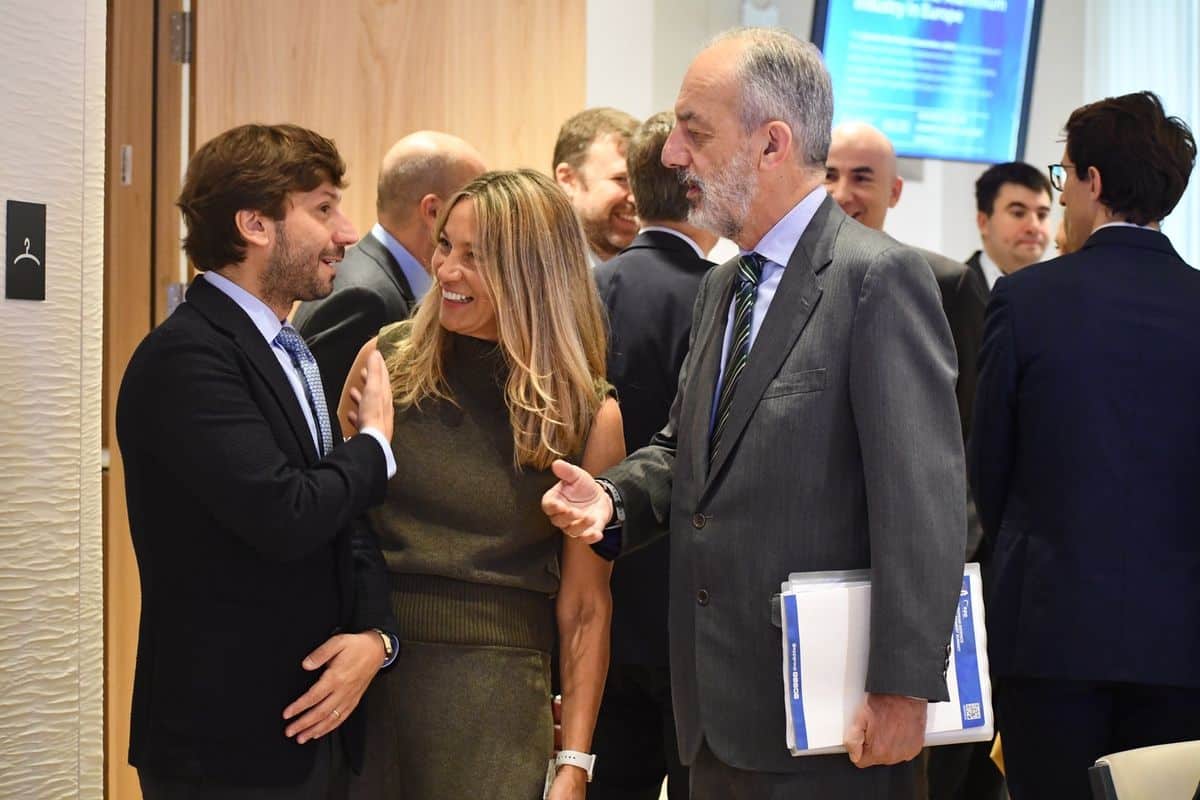Sure! Here’s the translation into American English:
—
The European Parliament became the meeting point for an information breakfast organized by the Spanish Association of Aluminum and Surface Treatments (AEA), where around 60 MEPs, parliamentary advisors, and industry representatives gathered. The central aim of the meeting was to discuss the Carbon Border Adjustment Mechanism (CBAM) and its impact on the aluminum industry, a sector of vital importance to the continent’s economy.
The session was opened by MEP Susana Solís Pérez and Polish MEP Adam Jarubas, both from the PPE Group, who highlighted the need to adapt the CBAM to achieve climate goals without undermining the sector’s competitiveness. Solís Pérez emphasized that the current design of the mechanism does not reflect the specific realities of the aluminum industry, stressing the urgency of considering its peculiarities to avoid negative effects on employment and production.
Jarubas added that, although there is a commitment from Commissioner Hoekstra to work on this issue, a quick clarification of its implementation is essential. Antoine Chacun from ODDO-BHF warned about the structural deficit of aluminum in Europe, emphasizing that its absence could hinder ecological transition. He stated that the current mechanism could raise the final product’s cost and alter the metal’s sourcing, rather than reducing emissions.
Giorgio Di Betta, president of CENTROAL-ASSOMET, argued that excluding certain segments of the production chain from the CBAM could give unfair advantages to producers outside the European Union, thereby increasing emissions instead of reducing them. Meanwhile, Angelika El-Noshokaty, director general of Aluminium Deutschland, expressed concern about the lack of clear criteria for calculating the carbon footprint, which could lead to trade disputes and additional costs for the industry.
The aluminum sector faces significant challenges, especially following the closure of the Alcoa plant in San Ciprián, which has led Spain to import 220,000 tons of the metal annually. Additionally, sanctions on Russia and changes in international trade have further complicated the context.
The AEA, which represents more than 650 companies and employs over 17,000 professionals in Spain, has expressed its opposition to the implementation of the CBAM as currently designed. The association argues that it could result in a disproportionate regulatory impact and a risk of structural cost increases of up to €11 billion annually for the European processing sector.
Among AEA’s proposals is the need for a prior impact assessment before the application of the CBAM, a temporary exemption for aluminum, and recognition of the peculiarities of transformation-intensive sectors. While the association does not oppose the CBAM or its environmental goals, it stresses the need to adapt its application to prevent distortions that threaten the competitiveness of this strategic sector for Europe.
The meeting served as an important dialogue forum between the industry and policymakers, with hopes of reaching a sustainable balance that satisfies both environmental goals and the economic viability of the aluminum industry.
Referrer: MiMub in Spanish










